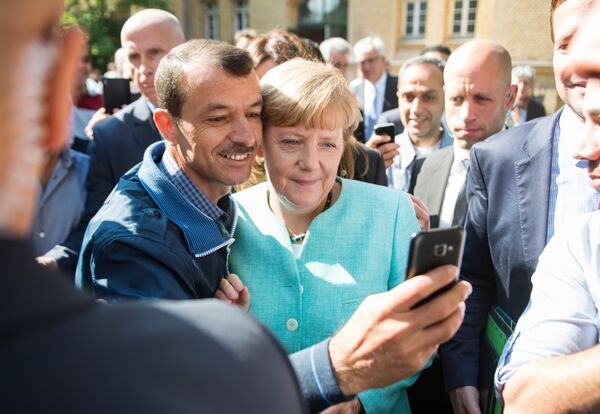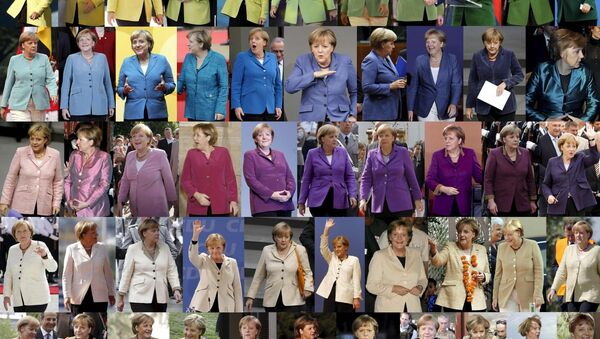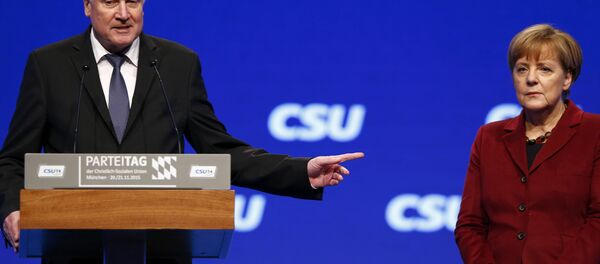Merkel — "Mutti" (mom) to many — was Germany's first female Chancellor and the first from the old East Germany, giving her a very special place within Germany. She knows a nation divided. She was born in Hamburg in what was West Germany, before moving — as a child — to East Germany, where her father was a church pastor and continued her studies in Leipzig University.
Having set herself at the heart of the EU dream, Merkel has come in for severe criticism at home and abroad over her refugee policy.
She declared Germany's doors open to refugees in the summer of 2015, precipitating a huge mass migration of people that threatened to overwhelm her own country.
However, Dr. Nils Diederich, Professor of Political Science at Berlin's Free University told Sputnik:
"The majority welcomed the migrants and think that, in a world crisis, we have to help them. But there are different sort of migrants — those from civil wars are welcomed, but there are many migrants who only want to search for better conditions. So most of them have to go back to their countries."
After initially failing to deal with the integration of refugees within Germany, she finally succeeded in facing-off severe criticism from within her own party — particularly from the leader of her sister party, the CSU. Horst Seehofer, Minister President of Bavaria.
Although her popularity dipped over the migrant crisis, Merkel retains the backing of many within Germany, with a Bild am Sonntag newspaper poll giving her 55 percent support for standing for a fourth term. And that shows the irony of her position: she is liked, despite everything that is happening in Germany and Europe.
"Merkel is the only candidate from the Christian Democrats who is electable at the moment. There is no other person who could be a candidate. Nevertheless, she will have opponents, but she has the best chance of leading her party to a win, " Dr. Diederich told Sputnik.
European Divisions
The EU is massively divided and pro-Europeans are looking to Merkel to take the lead of stabilizing a cauldron of disaffection.
The migrant crisis has thrown the EU into disarray, with Merkel backing Brussels in calling for a mandatory quota system to relocate refugees given asylum. Many — especially in Eastern Europe — are against the plan.

Her personally-brokered deal to press Turkey to stem the flow of migrants leaving its shores for Europe has also hit the buffers. Contingent on the deal was the acceleration of Turkey's accession into the EU, as well as visa-free access into Europe for its citizens.
Turkish President Recep Tayyip Erdogan's increasing grip on power — especially after the failed coup in July — has caused widespread opposition to the continuation of those talks, because of major differences over human rights and freedom of speech issues.
#angelamerkel #merkel is standing for election in #Germany for a fourth time. My @Telegraph cartoon pic.twitter.com/aUgwFGgGdK
— Christian Adams (@Adamstoon1) 20 November 2016
Meanwhile, austerity measures backed by Merkel in an attempt to shore-up the single currency Eurozone area are deeply unpopular — particularly in southern Europe, but she is determined to see the policy through to save the currency.
In the end, though, Merkel is likely to win a fourth term (albeit in another coalition, of some form) — not least because there is nobody else who has the ability to unite a country that is looking for a bastion to hold on to. She also knows she is uniquely positioned to pull the European family back together, somehow. In all aridity and disenchantment, children will always run back to "Mutti."



